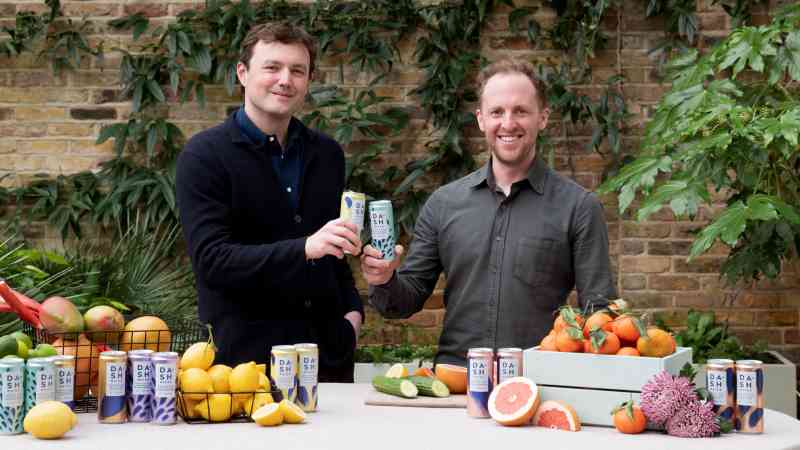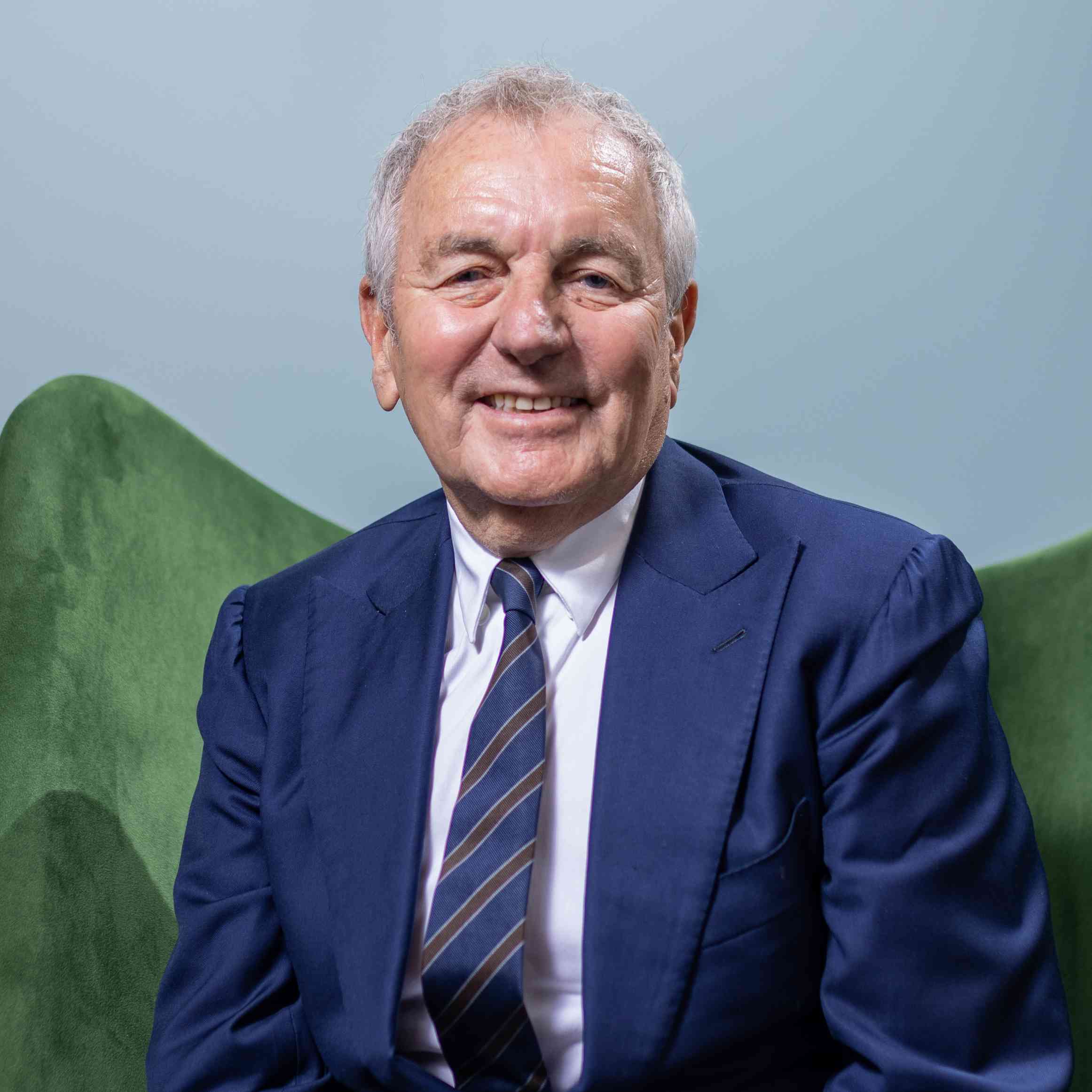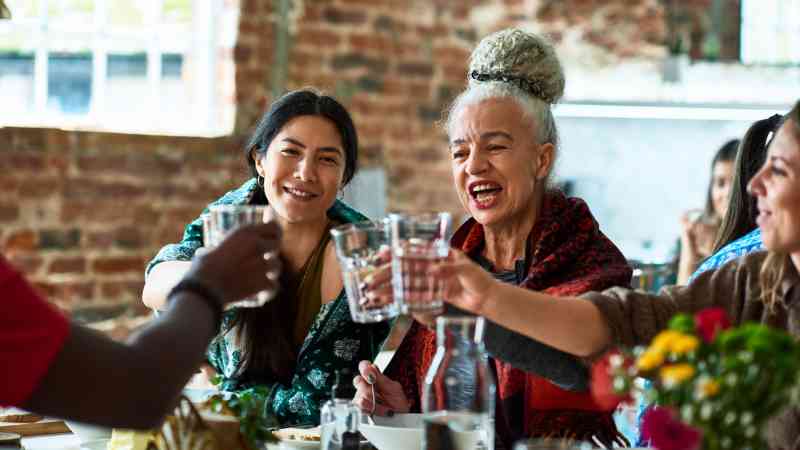What I learnt … setting up a factory in Australia
Alex Wright, 32, is co-founder and chief executive of Dash Water, a flavoured sparkling water brand, which uses “wonky” or imperfect fruit. He founded it in 2017 with Jack Scott and has raised £21 million from investors including Patrice Evra, the former Manchester United player, and David Milner, the former chief executive of the bakery group St Pierre, as well as venture capital firms such as Beringea. Dash is now exported to 20 international markets including Australia, where the firm opened a production facility in 2020 at the height of the Covid pandemic. This year it expects sales of £34 million, with 75 per cent in the UK, 15 per cent in Australia and the rest from exports elsewhere.
The early days of Dash were the darkest and it can be very lonely when you don’t know what you’re doing. Even now, as the chief executive of Dash, 60 per cent of the time I’m doing stuff that I’ve never done before.
This was especially true on the manufacturing side. It’s very simple ingredients — we only have food, water and bubbles in our drinks — however, it’s a very delicate liquid and is very hard to manufacture.
An early example was right at the beginning. I was 24 and Jack and I took a van and drove to Wales, which is where the best spring water in the UK is from. It took us ten hours to drive there, where we picked up a cubic tonne of water. We got a puncture on the way back and finally got back to north London where we had hired a portable canning machine.
We plugged it in and everything was looking shipshape. Then the cans came down the line and I’d never been more excited in my life. I took a swig of our cucumber drink and it tasted like off-berries because the canning line hadn’t been cleaned properly. We were seriously deflated. That’s when you need another person at the end of the day to go for a beer with and say, “That was a dreadful day; let’s try and pick ourselves up tomorrow.”
We started exporting early on
Dash got picked up quickly because the issues around soft drinks containing too much sugar and sweeteners, as well as food waste, aren’t just UK issues, they’re global. But Brexit was such a pain for us and created friction. Instead of looking at Europe we went much further afield than you would usually do as a business that was relatively nascent.
We decided to go to Australia because we had lots of demand — there’s a huge focus over there on wellness, sustainability and provenance — but we didn’t want to ship products around the world because that’s not very good for your carbon footprint. So we decided to set up local manufacturing in 2020 and from there export to New Zealand, Singapore and Hong Kong.
We said to our team there we can’t get a supermarket listing in 2020, we’re not ready for it. We need to find a manufacturing site, we need to be able to meet the retailers, we need to be able to set up the back office and finance team.
Then I got a call when I got into the office from Australia about 7am in February saying, “Alex we’ve got really good news. We’ve got a listing for five [product lines] in Australia’s biggest supermarket, Woolworths.” And I said brilliant, but obviously we’ve got our agreement that we won’t launch into any supermarket until next year. They replied, “Yes, that’s the only slight hurdle — the listing would be in July 2020.”
We had crunch talks about whether we would be able to fulfil these orders
We decided to go for it and it was all looking fine until May when I got a call from Jack, my co-founder, and my finance director saying, “Alex, not great news, but we’ve got a solution to it.” The cans that we were hoping to get from Dubai we couldn’t get, but we could get the exact same ones from a manufacturer in Vietnam.
The next day I got another call saying, “Alex, it’s not great news, and we’ve not got a solution. Vietnam has just gone into lockdown and we’re not able to use those cans.” We didn’t think we could use cans from Australia because the timings were too short but we managed to make it work.
It was very tight. We manufactured for the first ever time in Australia the week before launching into Woolworths and the products were on the shelves in Australia before anyone in the UK even tried them. It was a hair-raising moment when we did but it was absolutely delicious.
One of our investors is the chief executive of another drinks brand in Australia and another owns a distribution business in Australia, so they were able to show us the manufacturing sites and introduce us to the retailers. We wouldn’t have been able to do it without them.
We were working around the clock
Jack was working on the cans with our can manufacturer over Zoom about three weeks before [the launch]. They had to do it between midnight and 4am because of the time difference and they would put up the can to the camera and Jack would say a little bit more blue here, a little more white here. He did that for three nights running because we were working on such a tight time frame.
The whole thing was a bit rough around the edges. We don’t normally operate like that but sometimes you just have to get stuff done. We’ve now got a team of four people Down Under, two people from Australia and two people from our UK team who moved over.
Being able to get out to Australia in early 2021 was one of the most fantastic experiences because we had put in so much work and there was so much risk associated with it.
It’s going very well and we’re now also in Australia’s second biggest supermarket, Coles. I try to go out there once or twice a year and I speak to the Australian team every day — always at 7am, then often at the end of the day as well, depending on daylight saving hours.
The key lesson I learnt about exporting to a new market was to not be afraid to test a product, even though it’s not perfect. We started with a small batch of products in Australia that we brought over from the UK and we tested it with customers, and that performed well and we got interest from the supermarkets. So I’d say, get out there, see what the reaction is. Then learn, iterate and relaunch.
Alex Wright was talking to Hannah Prevett, deputy editor of Times Enterprise Networkhttps://www.thetimes.com/business/enterprise-network




Post Comment